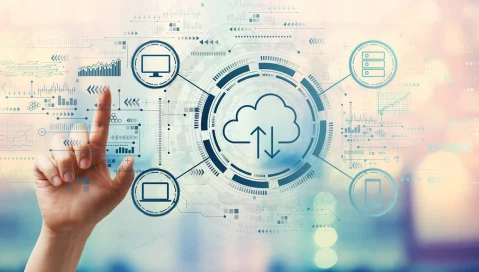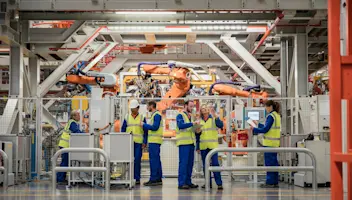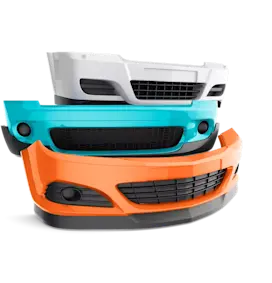Industrial Manufacturers: 10 Questions to Ask When Transitioning to the Cloud
Industrial Manufacturers: 10 Questions to Ask When Transitioning to the Cloud
Industrial Manufacturers: 10 Questions to Ask When Transitioning to the Cloud
6 Jan 2021
Aptean Staff Writer
Making the transition from on-premise software to a software as a solution (SaaS) model is a really big deal. We understand that; we get it.
And we're here to make the process easier for you.
First up, if you're not completely comfortable yet with the differences between on-prem and cloud ERP software and want to understand the pros and cons of each, check out our guide: The Real Difference Between On-Premise and Cloud ERP Solutions.
Next, to help you determine if a transition to the cloud is the best option for your industrial manufacturing business, read the below list of ten questions to ask your potential SaaS partner.
Because at the end of the day, it really is a partnership. You'll work with your cloud software vendor to protect and manage your data. You want to trust the people you work with. These are the right questions to ask, and you want to make sure you're given the correct answers, as well.
Here are the ten most important questions to ask and the answers to look for:
1. Is my data secure?
Your data is your most valuable asset; after all, it's what makes you you. It's how you differentiate yourself from every other manufacturing company. This is why you want to work with a vendor who takes your data security as seriously as you do. When shopping for the right vendor, the SaaS model they use MUST utilize serious protection mechanisms within the data center.
The right SaaS partner can propel your business forward. Here are just some of the advantages of partnering with Aptean:
24x7x365 threat monitoring
A team of data security experts
Guaranteed uptime of 99.9%
Data encryption using SSL
Servers secured by MFA
2. If I put my data in the cloud, do I still own it?
Absolutely. Your data is and always be yours. Cloud environments offer maximum security and protection while making it easy for you to access and use.
As a trusted vendor, we're here to support whatever your business needs are. Admittedly, the cloud isn't for everybody; sometimes, the benefits of the cloud don't quite align with those of your business. However, we are confident that our SaaS model enables you to do the most with your data.
3. What are your uptime statistics, and what happens to my data in the event of a disaster?
If all your data is stored on-premise, and you suffer from hardware failure or a natural disaster, you run the risk of data loss and loss of productivity during downtime. That's a really big deal. According to Gartner, the average cost of downtime is $5,600 per minute, and depending on your manufacturing operations and size, this could stretch from $140,000 an hour to as much as $540,000 an hour.
When your data is in the cloud, however, you don't have to worry about that. There's no hardware to age or break, no servers to flood or crash. It's all in the cloud. And it's all protected. We have a guaranteed uptime of 99.9%, so you never have to worry about costly downtime again.
4. What kind of maintenance programs do you offer?
Maintaining your own infrastructure is expensive. Beyond the day-to-day management of all that hardware and data, in the instance of an unforeseeable event, the cost and time associated with rapid course-correction are often astronomical. Not to mention the fact that every couple of years, hardware needs to be updated to continue to run efficiently.
With a SaaS model, all hardware and infrastructure costs sit with the SaaS partner. Should your business needs change, no expensive hardware purchases or data center upgrades are required.
5. What do software updates and upgrades look like?
Multi-tenant SaaS architecture ensures your updates are pushed directly to end-users, keeping everyone in your enterprise up-to-date on the latest version. When using the standard product offering, there are no additional costs associated with the updates.
6. Is my data really that accessible?
Yes. As long as your computer is connected to the internet, licensed users can access data from any location with just a desktop application or web browser. If, at any point, you want to add more licenses to your package, no problem at all.
This kind of accessibility is extremely powerful, particularly in the wake of COVID-19. Not everyone can make it into the office—whether for government restrictions or company policies—and with your data in the cloud, you have so much flexibility and scalability in terms of accessing your data offsite.
7. What is implementation like?
Choosing the right cloud ERP solution for your industrial manufacturing business enables you to deploy in the cloud while removing the need to spend time and money on the hardware, testing and backups that often delay the benefits of enhanced system capabilities. This dramatically reduces implementation costs and accelerates time-to-value. The implementation process is more efficient, and benefits realized more quickly
The latest version of software is always available in the cloud offering, so the customer can take advantage of product advancements as soon as they are available.
8. How easy is it to integrate with our other applications?
We know how important it is that your ERP connect with other best in breed solutions. Your business needs to be seamlessly connected. A modern cloud ERP solution should enable that rather than inhibit it.
SaaS promotes connectivity, allowing you to move between your third-party applications without feeling the effect of those gaps between the services and products. And we encourage you to explore ERP vendors who can provide the cloud ERP integrations you need for your specific industry and business. ERP vendors like Aptean.
9. Is SaaS really less expensive?
Yes, it really is. When you make the decision to move to SaaS, you remove the high costs of equipment and maintenance associated with running your own data center. Not only that, but you also avoid unplanned expenses because your costs are now defined and predictable.
A reputable SaaS vendor will involve you in determining your total cost of ownership (TCO) to ensure that a SaaS solution really is the best option for you and your business. Sometimes, it's not. You want a partner that ensures your ERP solution, whether in the cloud or on-premise, best meets your needs.
10. Can I quickly scale up or back?
Yes, absolutely. Based on your business needs, user requirements and company growth, you can easily and instantly scale up.
Our industrial manufacturing cloud ERP solution facilitates seamless workflow expansions and contractions depending on business needs. In terms of scaling up, the SaaS model becomes essential, as most on-premise models cannot process massive, sudden upticks in volume. When working with an on-premise solution, your business would require additional capacity, which adds cost.
Because there's so much innovation in the cloud, we can change and adjust your SaaS architecture quickly and as needed and in real-time.
These are the best ten questions to ask when shopping for cloud ERP. Transitioning to the cloud is a crucial step change towards future-proofing your business performance.
If you'd like to talk more about how your business can achieve greater agility, security and performance, reach out to our team of industrial manufacturing experts. We'd love to talk.
Related Content





Start transforming your business today
If you’re ready to take your discrete and industrial manufacturing business to the next level, we’d love to help.



